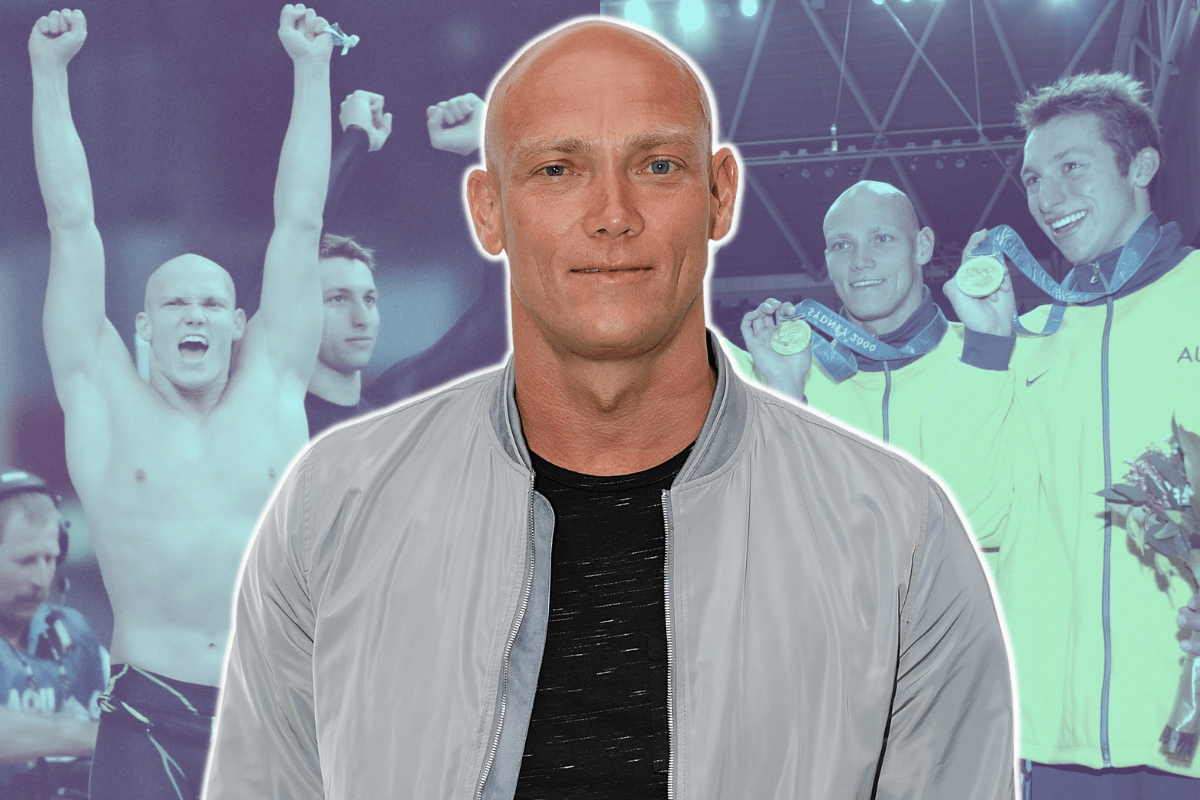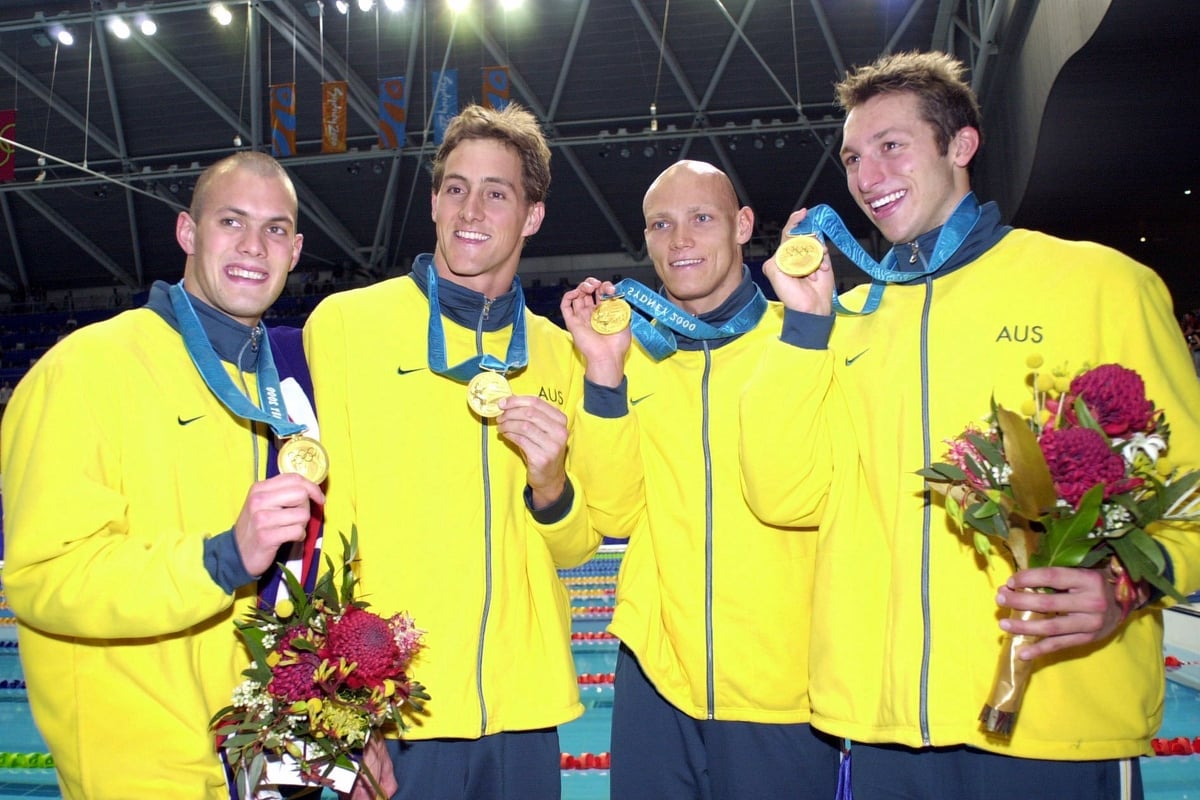
Michael Klim will forever be one of Australia's swimming greats.
In 2000, the nation watched on as the then 23-year-old dove into the pool for the 4×100m freestyle relay at the Sydney Olympics.
Within minutes, Klim along with Ian Thorpe, Chris Fydler and Ashley Callus had claimed gold and set a new world record.
Now, over two decades later, the six-time Olympic medallist and seven time world champion, is unable to walk unaided.
Speaking on Sunday night’s The Project, the 44-year-old opened up about his life with chronic inflammatory demyelinating polyneuropathy (CIDP) - a condition which causes a progressive weakening and loss of feeling and function in the arms and legs.
"Basically, I've lost sensation in both of my feet," he told The Project host Lisa Wilkinson.
With "little" function in his left foot and "minimal" in his right, Klim depends on a walking stick and braces to help him get around.
"I might end up in a wheelchair one day," he shared.
Watch: Michael Klim speaks about his health battle on The Project. Post continued below.
Klim, who has been keeping his condition private for years, first started noticing symptoms back in 2019.

